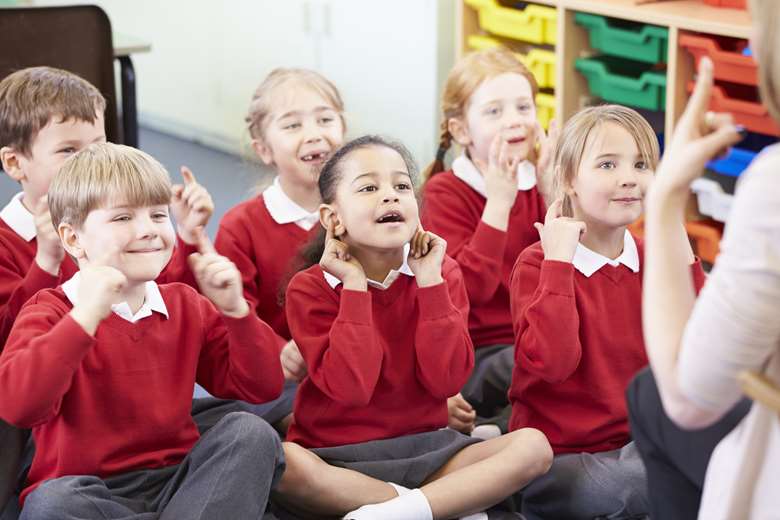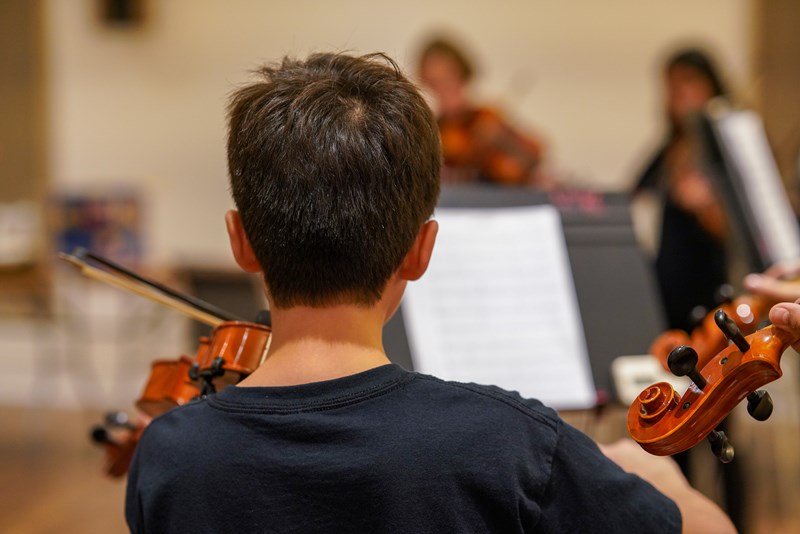Opinion: The MMC could be a springboard, but we need a complete change of mindset
Cyrilla Rowsell
Wednesday, April 14, 2021
Cyrilla Rowsell outlines her response to the Model Music Curriculum (MMC) from her perspective as a member of the Phoenix Collective, highlighting what more needs to happen.

The Phoenix Collective is a group of Kodály-trained educators who are passionate about the provision of high-quality music education for all. We have included discussion of the Model Music Curriculum (MMC) in our current CPD-accredited course offering, and we feel that the curriculum could be a springboard for real improvement in music provision. However, a fundamental mindset shift is needed.
Duration
The one hour of music per week stipulated in the curriculum is obviously better than nothing, but progress in music comes from imitation and repetition which need to happen regularly in order to build skill.
A short, sharp blast of music mid-morning is the perfect activity for children to refresh themselves, sharpen their minds and be ready to carry on with their core subject learning. If we are passionate about music education and creating musicians of the next generation, then we should be urging our education system to allow music to be taught for 40 minutes two or three times a week.
Using a resource available online, class teachers will be able to supplement and reinforce, for 10-15 minutes per day, the input given by the specialist.
PPA
Another major problem is that music is one of the chosen subjects often used to fill up PPA time. Some schools even refer to the ‘music’ lesson as ‘PPA’! This is a terrible restriction on our subject. Music is the wrong subject to cover PPA because our pupils need to learn little and often in order to make progress.
Expecting an hour of concentration for a 5- or 6-year-old is unreasonable and effectively creates a situation where music teachers become babysitters. There are better choices of subjects for PPA such as Art or PE where the children could get lost in a piece of artwork or enjoy a team sporting activity.
The fundamentals
If the foundations of the above are to be laid at primary school, then music needs to be taught regularly by a specialist. It is not possible for class teachers to develop all the skills needed to teach these foundations. Most class teachers have received a poor music education themselves, and even those who have enjoyed a good music education do not have the necessary specialist skills to be able to teach music competently and effectively. The amount of music training at ITT (Initial Teacher Training) is woeful.
So many class teachers are self-conscious about their own voice. They cannot identify children who are struggling musically and neither do they have the knowledge and experience to help struggling children progress.
There are many musicians with instrumental skills – and/or who have benefited from Kodály and Dalcroze training – but who do not have QTS (Qualified Teacher Status) and who are therefore unable to teach in the classroom.
Schools spend money on instruments and on ineffective whole-class schemes, where in fact the very best resource is a well-trained teacher who is able to distinguish between music activities of little value and those which truly develop the children’s skills, knowledge and understanding in a joyful, challenging and rewarding way.

Music Education Hubs
For Music Hubs to be effective they need to liaise with a musician in every school to understand their needs and then try to fill them. Music Hubs vary so much in the quality of teachers they send into schools. The schools are often not given a choice of instrumental teacher and they cannot interview and audition someone before accepting them. Children in primary school can have two or three different instrumental teachers in a year. Additionally, Music Hub teachers compared to self-employed musicians have limited time, and morale can be very low and pay is often poor.
Whole-class instrumental programmes do not work very well. Progress is very slow and interest is hard to maintain. It is not an easy task for a musician from a Music Hub to manage a class of 30 children for one hour. They are often left by themselves with three or more types of instruments to teach all at once. Children become bored from waiting, behaviour gets out of control and by the end of the year, children can barely play anything.
Why not split a class of 30 into groups of 10 and, over three terms, learn the basics of playing string, woodwind and brass? This gives children the experience of different orchestral instruments they may like to study later on.
Singing
How Year 6 singing in harmony could be achieved without a music specialist is beyond me!
Musicianship and singing are key. How does one even begin to compose without understanding pulse, rhythm and pitch? Using these tools extends musical memory which then leads to an understanding of form and structure, which then moves into the area of basic composition.
Maths is taught every day in school because we want every child to be a mathematician. Music should be treated in the same way because music affects us academically, physically, mentally, emotionally and spiritually - to the core of our being. Singing is good for us and makes us feel well, joyful and refreshed. It penetrates deep into the soul. With the current emphasis on the mental health of our children, music has to be one of the most beneficial subjects for our children.
To conclude
Given the £80 million investment from the government, we would have liked someone to ask our schools what we need to make music flourish.
Now is the time for the revolution. We need a complete change of mindset with regard to music education – from the government, from head teachers, from the whole education system. It’s time to stop perceiving music as an ‘add-on’ where low-quality teaching is acceptable because it ticks the required boxes.
Now is the time to invest money where it will be most effective – in the systematic, thorough training of teachers (both class and specialist). Organisations like ours have skilled, enthusiastic, passionate, experienced staff ready, willing and able to do this. Let’s not let this potential go to waste.
‘Many people are looking for the door to the treasury of music in the wrong places. They obstinately keep hammering on the locked gates and pass right by the open doors that are accessible to everybody.’ Zoltán Kodály
The MMC can be read here.
www.thephoenixcollective.co.uk
Images: AdobeStock/Monkey Business /RCP

